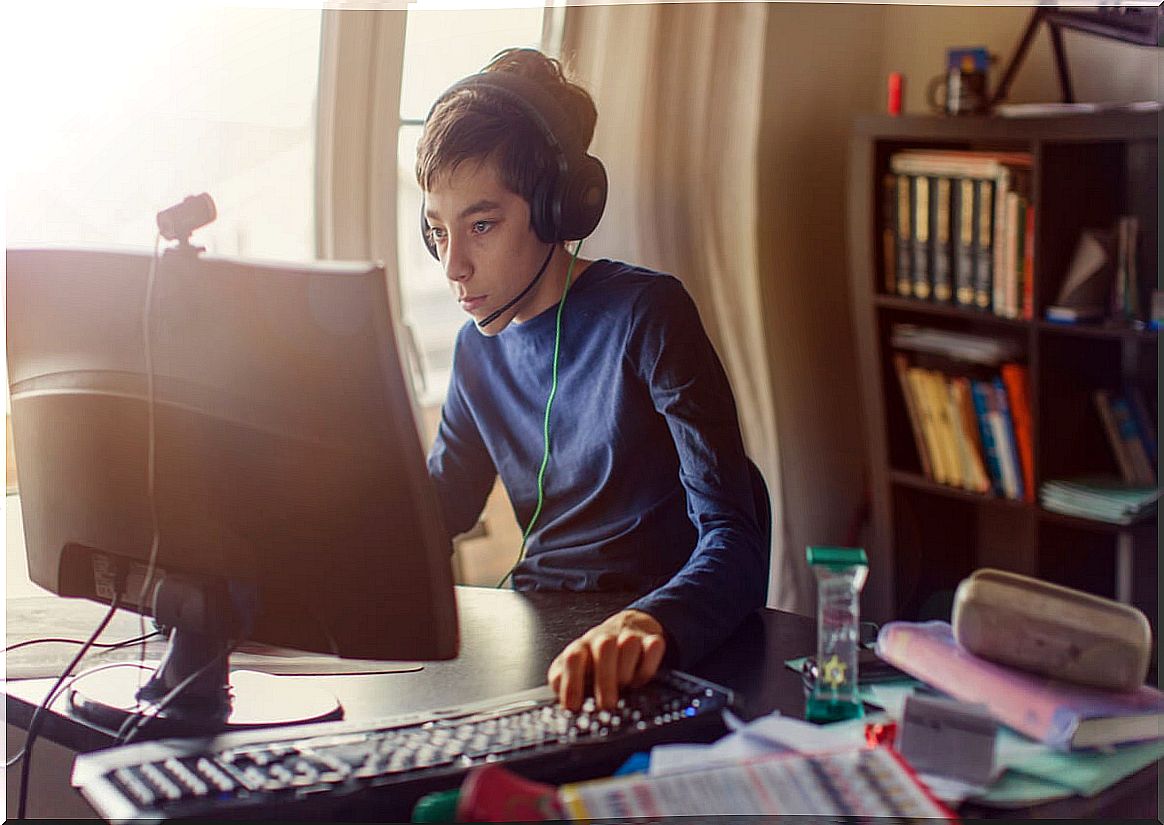Screen Time Does Not Alter Social Skills In Children, According To Study
Contrary to what one might think, it seems that children’s social skills are not affected by the time they spend in front of the screens. At least, this is indicated by a study that we will detail later.
It is true that the way we relate to others has changed since screens began to be an active part of our routines. Interpersonal relationships can occur remotely, through devices connected to the internet.
Now, in relation to infants, there is a debate about whether the time they spend in front of the screens can affect their social skills in any way. In this sense, a study affirms that there is no relationship between the time in front of the devices and the deficit in the social skills of children.
Importance of social skills in children
The ability to be able to relate to our peers is something that begins to be acquired in the early ages of evolutionary development. Since we are children we require a good socialization with the people around us. Having social skills means fitting into society.
Taking into account the above, we can establish that the importance of social skills in children lies in the fact that they allow us to add to their personality the social component, made up of the behaviors that we learn from the significant beings in our environment.
Those people capable of establishing quality social relationships will have a greater probability of acquiring useful resources for their life. For example, the value of friendship implies having tolerant, respectful behaviors and knowing how to share with those who need it most. In short, we develop empathy.

What does the study say about social skills in children exposed to screens?
The aforementioned study has been published in the American Journal of Sociology and tells us that the time that children spend in front of the screens of electronic devices does not affect them in the development of their social skills.
The results can mean good news for parents from all over the world, taking into account that in today’s times it is difficult to keep children away from screens. In fact, the author of this study had the idea to do it during a conversation with his son.
The professor in sociology at Ohio State University, Douglas Downey, was motivated to carry out the investigation regarding the supposed damage that screens cause in the social development of children, because during a debate with his son he argued that he had no proof of screen damage.
For the realization , a population sample of two different generations was taken. The first corresponded to a group of 19,000 adults who attended preschool in 1998, while the second was with people who attended preschool during 2010.
What is concluded in the investigation?
Next we are going to show the conclusions of the study carried out by Professor Downey in 2020. In principle, the most outstanding thing is that of the two generational samples that were used, no significant differences were obtained in terms of the level of socialization.
1. Screen time does not affect social skills
This first conclusion arises from the fact that none of the children who attended preschool in 2010 had significant problems relating to their peers. The only exceptions were those infants who had access to social networks and those who spent several hours a day playing video games.
2. It is not necessary to be face to face to socialize
One of the reasons that screens do not affect socialization is that through electronic devices contacts can be established. Parents can use video calls to keep their children in touch with family and friends.
3. The use that is given to the screens is decisive
According to the aforementioned study, the use that children give to their screens can negatively influence the development of social skills. For example, those who use electronic devices to constantly play video games show less interaction with other kids.
What do other studies say about it?
Some previous studies affirm that prolonged exposure to screens does affect the socialization process in children. For example, a meta-analysis proposes that when children spend too much time in front of screens, they develop addiction and do not feel gratified by socializing.
When children under the age of 3 have access to electronic devices, their curiosity about the real world is diminished. Which implies that there will be no meaningful learning through observation and imitation of activities.
Negative effects to consider of the use of electronic devices
Let’s see a list of some of the negative effects that excessive use of electronic devices can have on children. Importantly, these reactions occur when the behavior is intense and recurrent. They are as follows:
- Night terrors.
- Electronic device addiction.
- Low tolerance for frustration.
- Attention deficit in activities that do not involve the use of screens.
In addition, children could be exposed to content that is not suitable for them. Devices with internet access are a difficult source of information to regulate, so parents should always be alert to what infants are watching.

Importance of electronic devices
Regardless of the aforementioned, new technologies have a positive role within society. People can be communicated from anywhere in the world, which implies a greater scope for personal and professional development.
When it comes to raising children, electronic devices can be helpful if used correctly. So you must have responsibility in the application of technology for the development of the youngest. Generally speaking, it is important to set limits regarding the use of technology by children.
How to manage children’s screen time?
Pretending that we can deprive children of access to screens is an unrealizable expectation. Consequently, when parents enforce inflexible rules regarding the use of electronic devices, children become frustrated.
For this reason, the best alternative will be to establish schedules and reasons for use. A good idea to regulate time is to propose daily routines in which they have to distribute their time between various activities.









